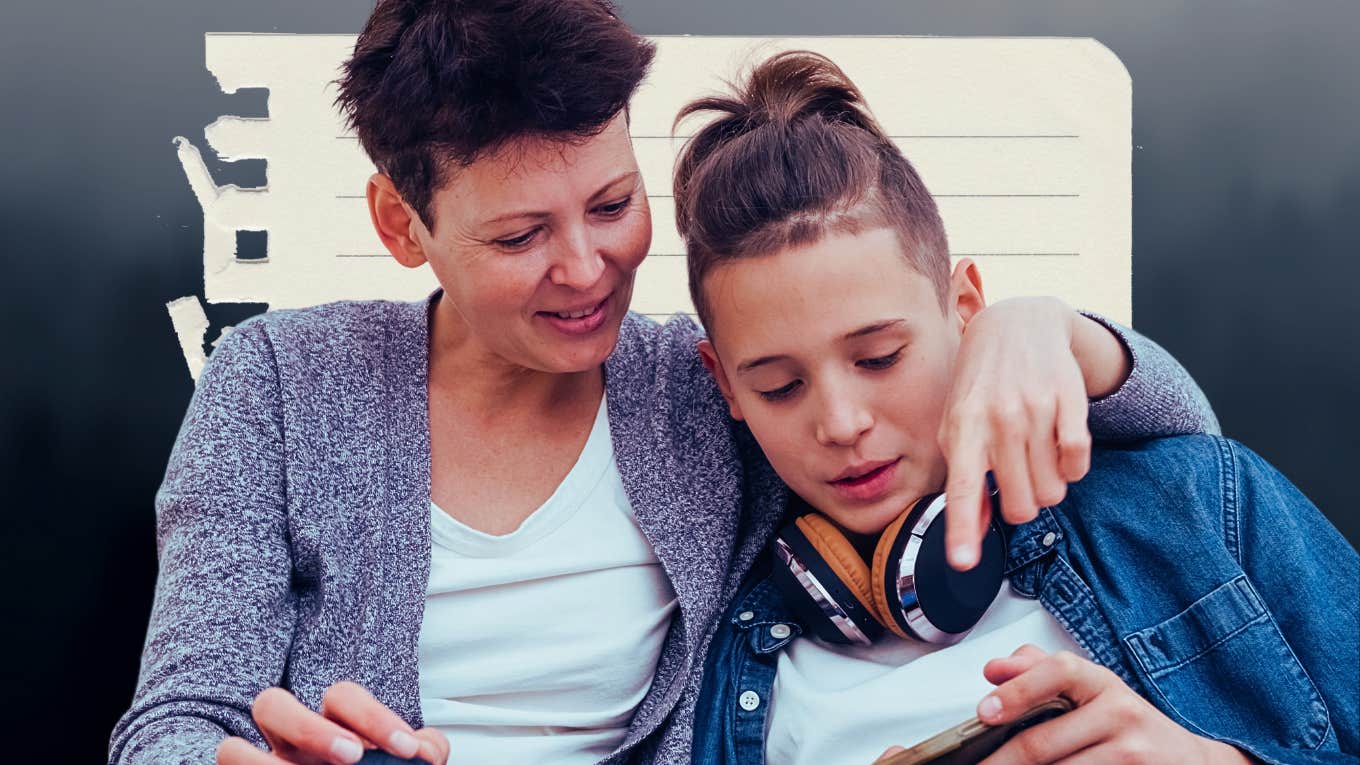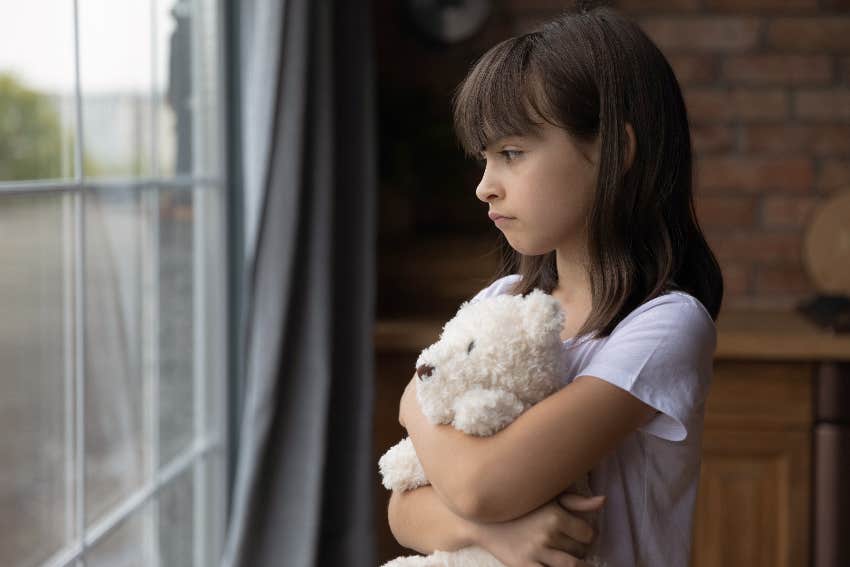3 Common Phrases Parents Say To Their Kids That Do More Damage Than Good — Uncovered After Coaching Countless Parents
Messing up as a parent is inevitable.
 Maria Surtu via Shutterstock | Sparklestroke via Canva
Maria Surtu via Shutterstock | Sparklestroke via Canva When we are beyond frustrated as parents, we might say things in the heat of the moment. But, when we reflect on those words, we are often filled with guilt and shame.
"Why did I say that," we think angrily. "I'm literally the worst parent ever." We have to understand that messing up as a parent is inevitable. Yes, even the most knowledgeable parents aren't excluded
However, knowing what phrases to avoid can make it easier to be the best parent you can be. So, here are the phrases parents say to their kids that you may want to avoid altogether.
Here are 3 common phrases parents say to their kids that do more damage than good – uncovered after coaching countless parents:
Clinical psychologist Dr. Shefali Tsabary writes, "Words are powerful and can leave lasting impressions on a child’s psyche. It is crucial for parents to be mindful of what they say to their children to foster a positive and supportive environment."
1. "Why can't you be more like your sibling?"
There was this awkward moment I had when I went out to breakfast with my family. While we were waiting on a table a family member turned to her daughter and said, "Why can't you be more like her? She never causes trouble. She always does what she's supposed to do."
And when I looked at her daughter I noticed how her face fell and how angry she got. Because the truth is: that nobody likes comparisons, not even adults.
Dr. Shefali explains, "Comparisons can lead to feelings of inadequacy and sibling rivalry. Instead, focus on each child’s unique strengths."
A 2003 Pennsylvania State University study helps us understand that siblings aren't going to be the same as each other. Even if they were raised together there are bound to be differences in personalities or how they learn. When parents can understand this, their children begin to thrive on their own.
2. "Because I said so."
Have you ever been questioning someone about something and they hit you with the, "Because I said so," line? Maybe you grew up hearing it all your life. And when we look back, this phrase was always absolutely infuriating to hear, right?
Regardless if they're kids they deserve an explanation. Because your children are not mindless robots without thoughts of their own. Yes, your children want to communicate with you and get to know your mind better.
But more than that, this phrase is utterly soul-crushing. As Dr. Shefali explains, "This phrase shuts down communication and can create resentment. Instead, explain your reasoning to foster understanding and respect."
 fizkes / Shutterstock
fizkes / Shutterstock
3. "Stop crying."
Speaking of shutting your children down, telling them to stop crying won't help them learn emotional regulation according to the Children's Hospital of Philidelphia. While Dr. Shefali writes, "Dismissing their emotions can make them feel invalidated. Instead, acknowledge their feelings and help them process their emotions."
When your child comes to you looking for comfort give it to them. Make eye contact, nod along, and show them that you're listening and that you're here for them.
Marielisa Reyes is a writer with a bachelor's degree in psychology who covers self-help, relationships, career, and family topics.

